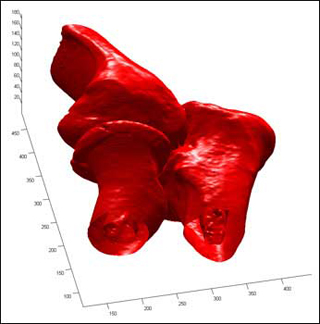Course Description
This course presents the fundamentals of digital signal processing with particular emphasis on problems in biomedical research and clinical medicine. It covers principles and algorithms for processing both deterministic and random signals. Topics include data acquisition, imaging, filtering, coding, feature extraction, …
This course presents the fundamentals of digital signal processing with particular emphasis on problems in biomedical research and clinical medicine. It covers principles and algorithms for processing both deterministic and random signals. Topics include data acquisition, imaging, filtering, coding, feature extraction, and modeling. The focus of the course is a series of labs that provide practical experience in processing physiological data, with examples from cardiology, speech processing, and medical imaging. The labs are done in MATLAB® during weekly lab sessions that take place in an electronic classroom. Lectures cover signal processing topics relevant to the lab exercises, as well as background on the biological signals processed in the labs.
Course Info
Learning Resource Types
assignment
Problem Sets
notes
Lecture Notes

From a former student: “I liked this class so much that I was overjoyed to find out that I would need a CT scan when I broke my arm. Fortunately, they gave me the raw data on a CD in the form of 2D slices. So I quickly searched for my Lab 3 and processed it into a 3D model in MATLAB. It came out pretty well!” (Courtesy of Jonathan A. Cox. Used with permission.)










